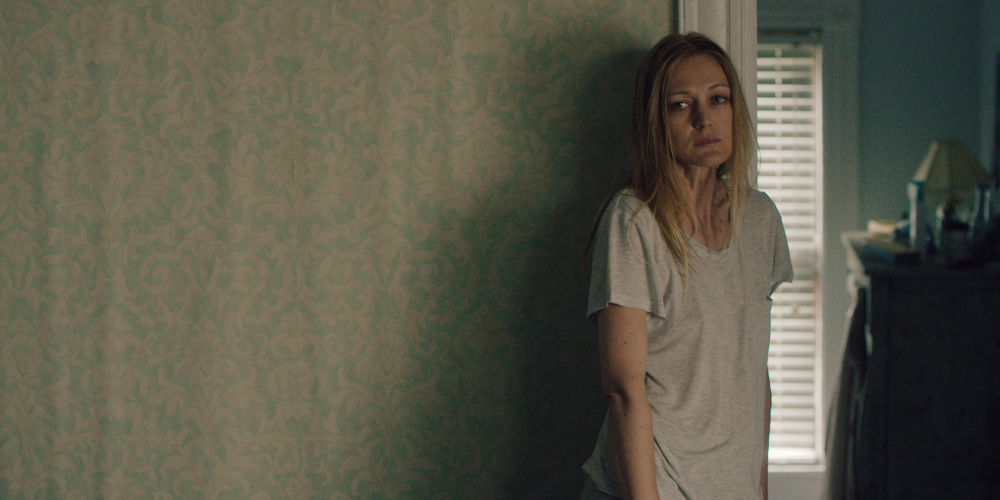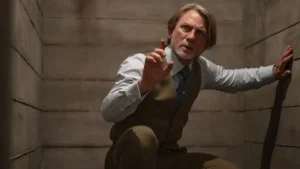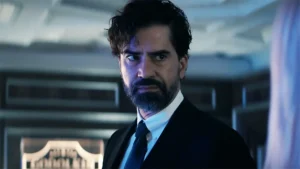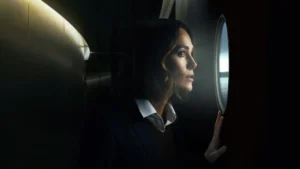Summary
An outstanding debut feature from Dean Kapsalis, a psychological horror about a family whose central figure is suffering from a deterioration of mental health.
Dean Kapsalis’ first feature film The Swerve is stunning, believable, and heartbreaking. In the half-hour since I finished watching it, my head has been spinning, I’ve been close to tears and the realization dawned on me that I can think of nothing wrong with this film at all. Don’t get me wrong: I’m not saying I enjoyed it. After I’ve finished writing, I’d be happy to never think of The Swerve again.
The central character is Holly (Azura Skye), wife to Rob and parent to Ben and Lee. At work, she teaches literature; at home, she does virtually everything. Spouse and kids barely notice her constant efforts, and the pressure is causing insomnia. At the same time, her own parents and sister demand their own kind of perfection from Holly. When she spies a mouse in her kitchen, this marks the start of a steep and decisive decline in her ability to cope.
Holly’s husband Rob (Bryce Pinkham) fluctuates between loving and thoughtless; never mean, but clearly straying a little. His moment of gaslighting – which doesn’t work – reveals a panicky weakness, which to my mind makes him utterly plausible. The boys (Taen Phillips and Liam Seib) too are well cast and sharply written; both lazy and demanding as all kids can be, affectionate only on their own terms. It’s Holly’s younger sister Claudia (Ashley Bell) who prods at the emotional wounds deliberately though: she clearly doesn’t find life easy either and can take it out on everyone with a word or an eyebrow.
There is so much that is remarkable about The Swerve. Everything is shown from Holly’s point of view and it is all way too much for her. She is very much a regular, middle-class working mother like so many others, sometimes providing what those around her need and sometimes feeling utterly invisible to them. There is a strong sense (which I can thoroughly sympathize with) that her family does not see Holly in her own right, but only in terms of what she means to them, and she has an overpowering urge to be noticed and appreciated. Nobody is aware of the impact they have on her, even when she tries to express it.
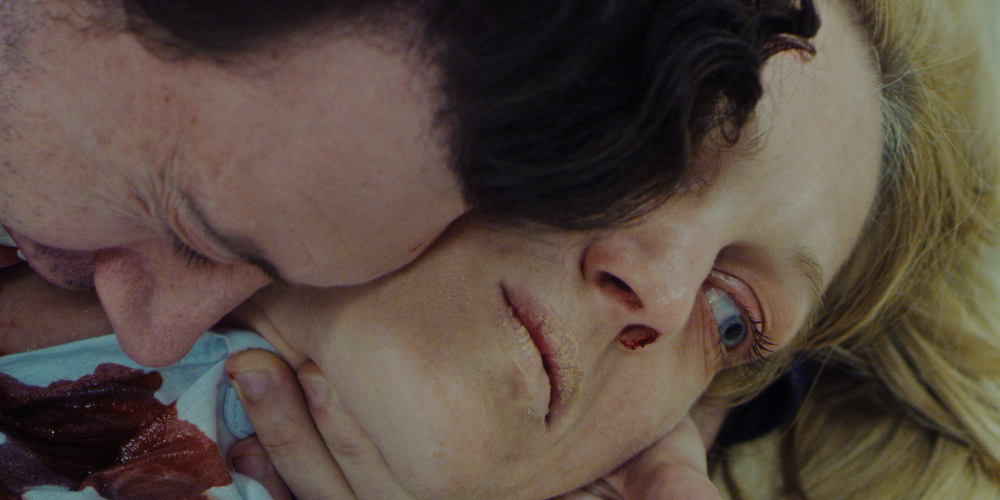
The key theme of The Swerve is Holly’s mental decline, but it’s wider than that: it’s also about how other people contribute to that decline (unwittingly, carelessly), and how it also can inevitably impact others too. I’m not sure if there is a message to be read in the film, a warning perhaps that we should be more aware of what (we don’t know) people are going through. But awareness doesn’t solve much in its own right.
Perhaps this is the working mother’s Falling Down. In style, it reminded me more of Antonio Campos’ Christine, with the inescapable deterioration and the need to be recognized. The Swerve has its UK premiere at FrightFest, so although those two examples are dramas, it’s natural to expect The Swerve to be a horror film, which it certainly isn’t in the traditional sense. It sure as Hell feels like it though, by the time the end is reached: Mark Korven’s music is haunting and carefully positioned, not overdone in the slightest (it’s no surprise to find he also composed the soundtrack for The Witch and The Lighthouse). The feeling that not everything Holly experiences is real compounds the sense of horror: she has nightmares, and may imagine things… so it’s very easy for Rob to simply tell her “get your meds checked” and not be the husband he should be.
There is so much to admire and unpick about The Swerve. I could talk about the domestic symbolism of the apple pie, the foreboding of the rain, the precise yet unfussy cinematography. I truly hope there will be lots of talk about this film when it is widely released: it deserves to be recognized as a psychological and dramatic study of what life and other people can do to someone.

